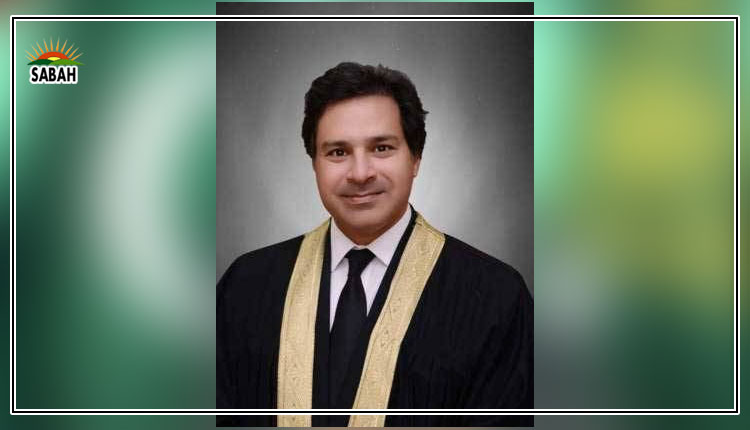Our seminaries being pushed towards radicalism & extremism but we are exercising patience: Maulana Fazlur Rehman
Says bureaucracy & establishment can use as many sympathetic words as they wish; we have no trust in them
PESHAWAR, Dec 7 (SABAH): Jamiat Ulema-e-Islam-Fazl (JUI-F) Chief Maulana Fazlur Rehman has said that their seminaries are being pushed toward radicalism and extremism, but they are exercising patience. He remarked that ‘the bureaucracy and establishment can use as many sympathetic words as they wish; we have no trust in them.’
Speaking at an event in Peshawar, Maulana Fazlur Rehman highlighted that there are two major threats: one of annexation and the other of apostasy. He said religious seminaries play a pivotal role in countering these threats by teaching Hadith and guiding the Muslim community.
“Currently, all religious seminaries are under pressure to be forced into submission. I even oppose the division between religious and worldly education—knowledge is knowledge, whether it is religious or worldly.”
He reiterated his distrust in the bureaucracy and establishment, saying, “No matter how sweet their words may be, we will not trust them. They have destroyed the religious seminaries, and we will liberate them from this influence. We demand registration, but they don’t cooperate. We ask to open our bank accounts and operate within the state system, but they refuse to facilitate us.”
Addressing the situation of extremism, he remarked, “You are pushing my seminary toward radicalism and extremism, but we remain patient. We are not producing terrorists; this is a war, and we are fighting for religious survival. You have declared war against us, and now we face each other. We are steadfast, and we know that until the Day of Judgment, we have to fight for Islam because we aim for paradise.”
Referring to the political dynamics, Maulana Fazlur Rehman said, “Before the elections, the PDM government was formed. The Pakistan Peoples Party (PPP) was part of it, and Shehbaz Sharif was the prime minister. After extensive discussions, it was agreed that seminaries would have the autonomy to register with whomever they wished. We demonstrated responsibility at that time as well. A draft was prepared under the 1860 Societies Act, with an added clause. This draft was not prepared by us but by the government, and there was consensus on it. The bill passed the assembly but was blocked afterward. We now seek legislation on this consensus draft as part of the 26th Amendment, and we want it to become an act.”
He further mentioned the PPP’s role in negotiations, stating, “Even now, the PPP is in government. We held a month of negotiations during which I was engaged. After five hours of discussions, the bill was passed. The next day, five more hours of negotiations were held with Nawaz Sharif, and consensus was achieved. The bill was first presented in the Senate. The 26th Amendment bill comprised 56 clauses, to which we added five points of our own. The bill was passed, but now objections are being raised by the Presidency. At a meeting in Lahore, both the President and Bilawal Bhutto were present. Raising objections now is inappropriate.”












